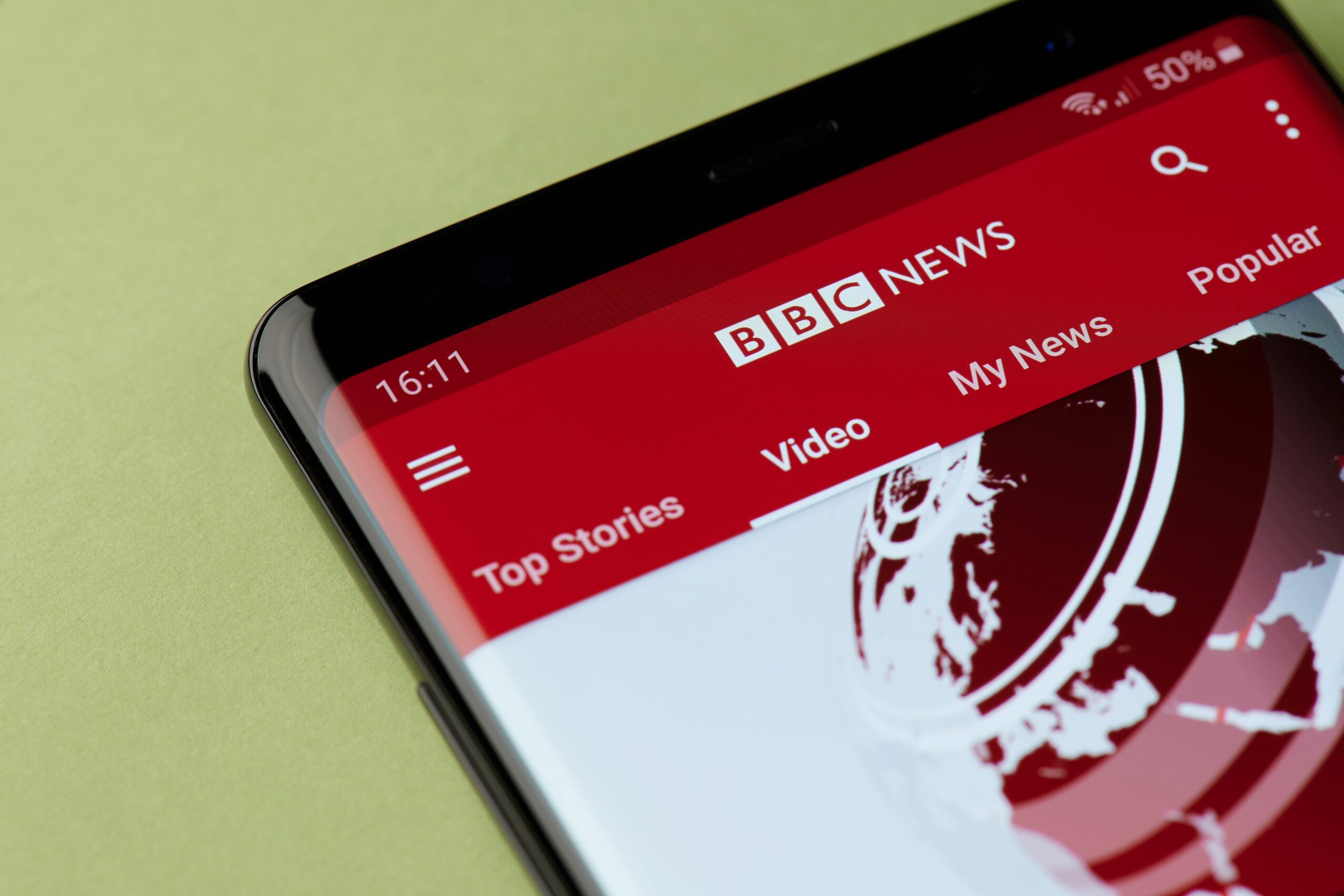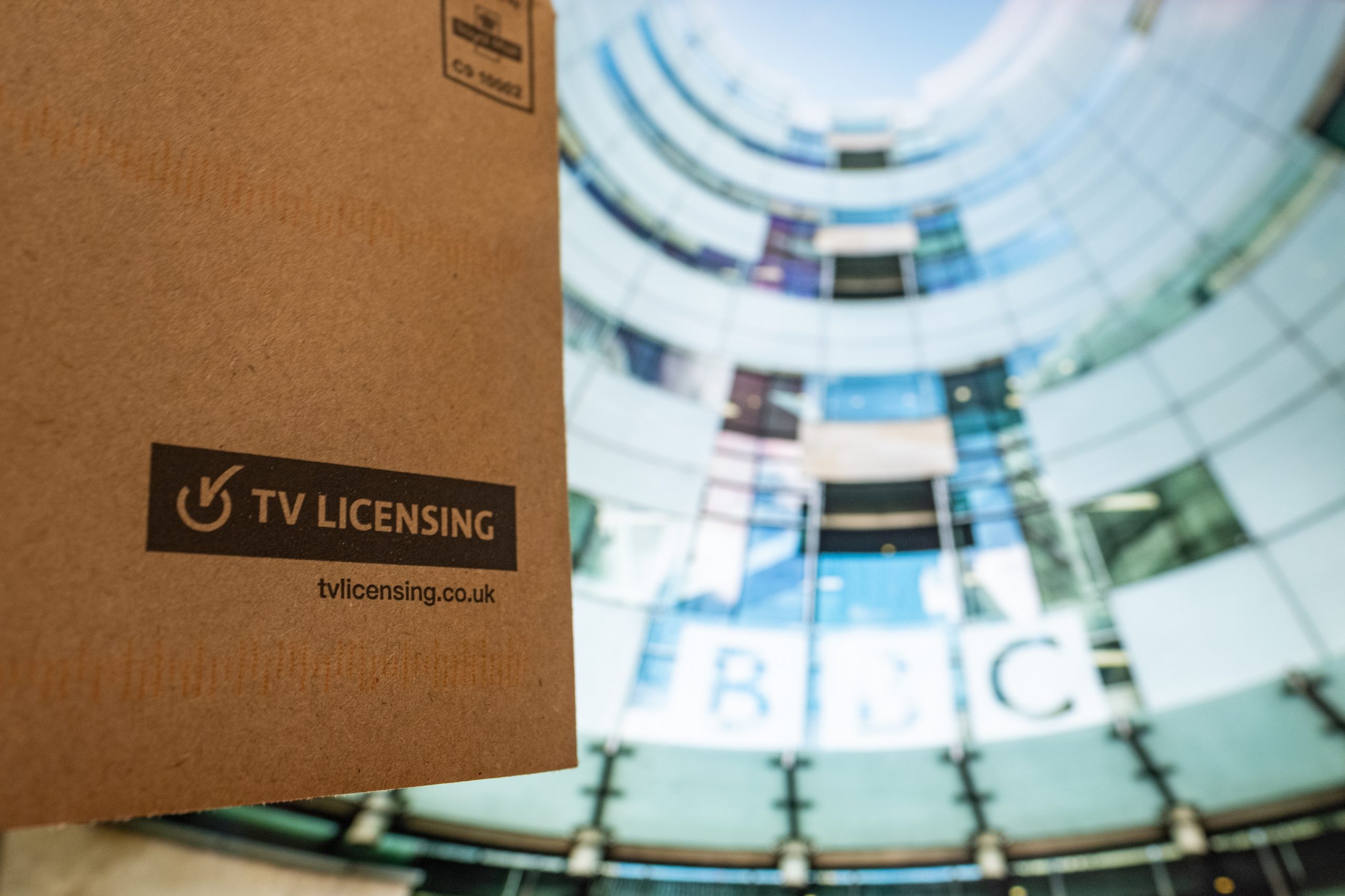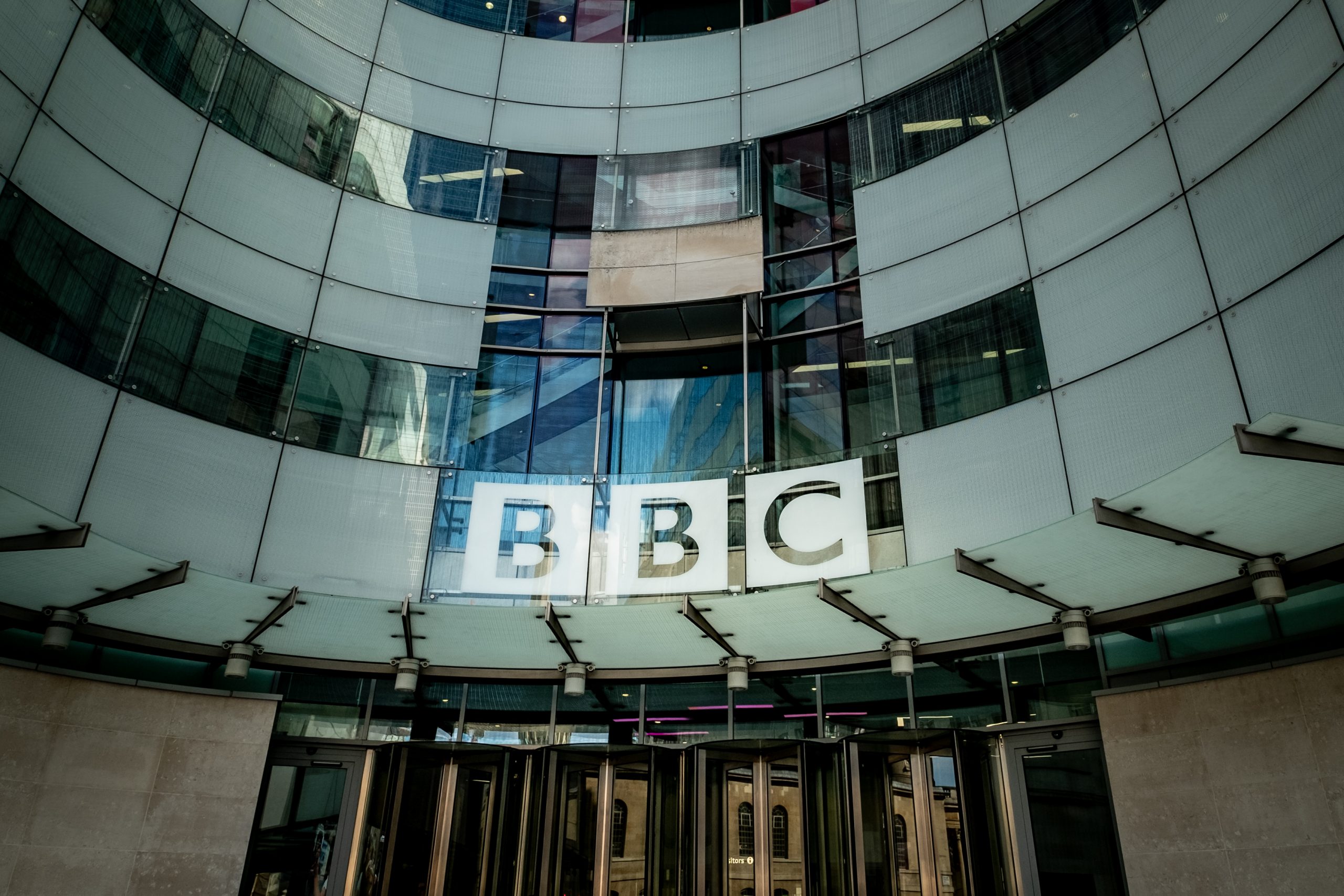SPEECH
The global role of the BBC World Service
19th January 2023
In a speech, the BBC Chairman Richard Sharp, examines the continuing importance of the BBC World Service in providing impartial and trustworthy news to global audiences.
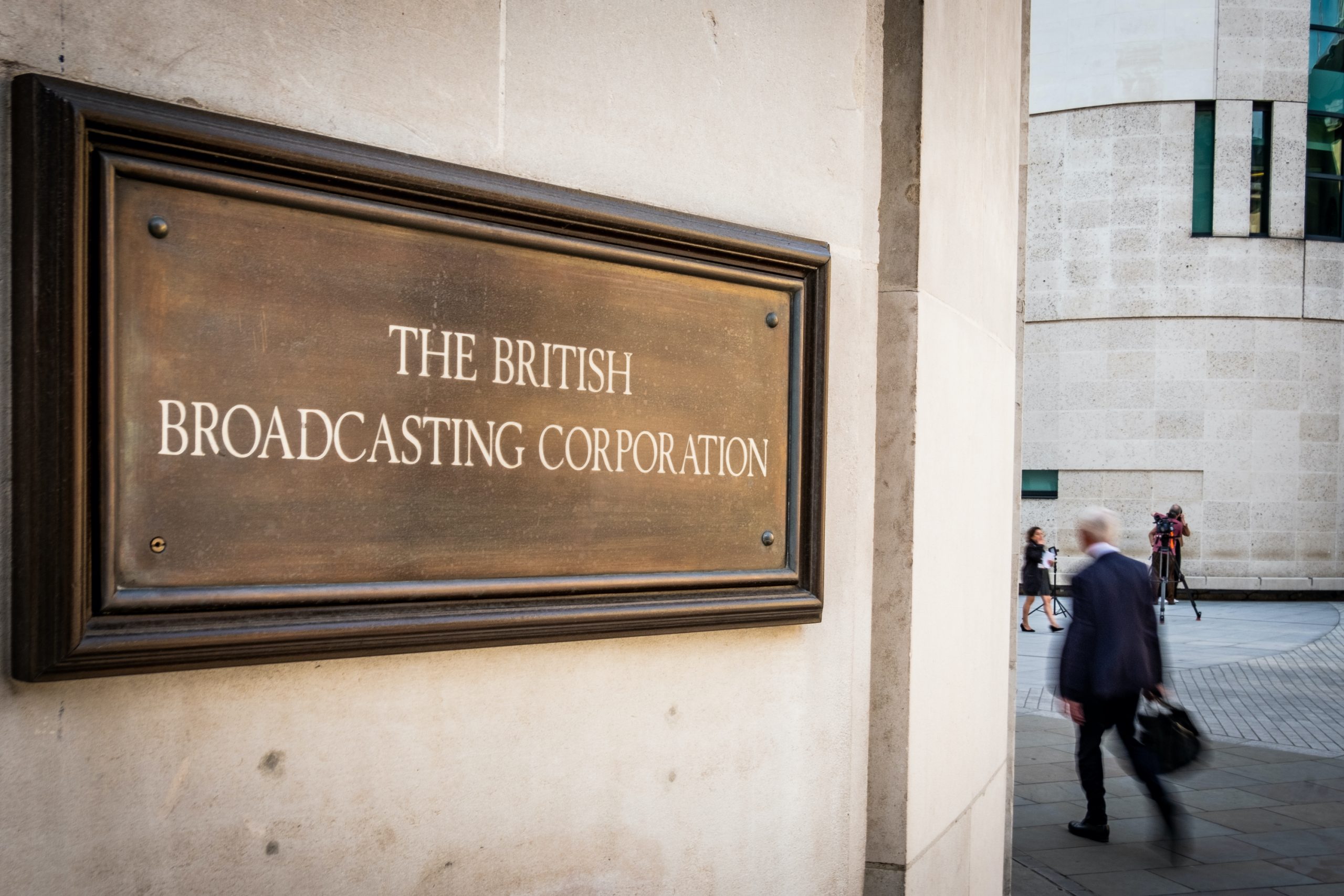
The BBC’s Chairman has advocated for the ongoing importance of the World Service in promoting democratic values for global audiences.
In a speech, he said the World Service was a “beacon of journalistic impartiality and a lifeline for millions living in fear, uncertainty or captivity worldwide.”
“When it first launched as the Empire Service in 1932, George V said it was for: ‘Men and women so cut off by the snow, the desert or the sea, that only voices out of the air can reach them.’ To that, 90 year later, we can add those adrift in a sea of propaganda, disinformation, and media repression.”
The World Service remained in a position of strength, he said. Despite being outspent by state-backed media entities such as China’s CGTN or Russia’s RT, the World Service was incredibly popular, accessible, and trusted amongst audiences.
But the World Service has been affected by the licence fee freeze in the UK. Its international 24-hour news channel will merge into the UK national 24-hour news channel, there are job cuts, and some services are moving online-only. Richard Sharp said the government needed to re-examine the funding situation.
“As John Kampfner of Chatham House observed in a recent article for Prospect: “where [the BBC’s] international services withdraw, Chinese and Russian state TV fill the gap”. I believe the case is now very strong for the Government to look again at taking back responsibility for funding the BBC World Service – at what is a critical moment for Britain and for democracy worldwide. This is the urgency of the moment we are in.”
Speech given by the BBC Chairman, Richard Sharp at the Whitehall & Industry Group (WIG) Breakfast Briefing on Thursday 19 January 2023
WIG mirrors many aspects of my career, in government, the Bank of England, the private sector and the BBC.
The relevance of that is that it has just been the BBC’s centenary year and it’s given us a time to think about positioning the BBC for the future, all the different elements of it.
And also, those things that are distinctive as a competitive advantage of the BBC.
In that vein we’ve actually produced a video touching on one of the most critical and important features of the BBC as you all know it.
People share their views on the BBC. There’s no doubt that in this 100 years that we’ve had establishing the BBC, domestically and globally, it has touched on all kinds of communities, and created a sense of ownership and involvement in a very large consumer base.
I’m going to touch on particularly the World Service issues, but in the Q&A I’m happy to touch on more broader issues with you.
The BBC’s role obviously is critical in the UK in terms of economic growth and the creative industries. And one of things we’re having to consider is the long-term funding and our strategy as a leading player in the global digital market.
I’ll certainly cover those issues, but I hope you feel that film gives you an idea of where I want to take my introductory remarks today.
In particular, I want to talk about trust and impartiality in today’s global media landscape.
Specifically, I want to focus on the role of the BBC World Service at a time when news provision has undoubtedly become a key weapon in the battle for global influence.
And I want to talk about why I believe that the BBC now has an opportunity that’s bigger than ever to establish ourselves as the pre-eminent purveyor of facts to the world in, what is in practice, the disinformation age…
… Not only as a good in itself, but as a chance to drive UK values of democracy, freedom, and the importance of rule of law around the world.
You will know, today, we are witnessing a growing assault on truth worldwide. And with it, democracy.
Russia’s invasion of Ukraine – now in its 330th day – could not have made it clearer how high the stakes are.
Information has become much more than a casualty of war. It is a key day-to-day weapon within it.
Let me pick out one example.
Back in May, a film began to circulate online which reported that Poland was preparing to send troops into Ukraine…
… A NATO country, preparing to send its military across the border, crucially – according to the report – with US endorsement.
That film carried the BBC’s logo and followed the format of our social media clips. It had the same font, graphics and caption style.
Of course, it did not come from the BBC.
Instead it was part of a growing volume of ‘impostor content’, through which bad actors seek to sow disinformation by impersonating trusted news outlets.
To that we can add the rising threat of deepfake technology.
All of us will have seen examples, and will be aware of how this technology is becoming rapidly more sophisticated.
We also saw the mayors of several European capitals duped into holding video calls with a deepfake of Vitali Klitschko, their counterpart in Kyiv. Some took as long as fifteen minutes to catch on to the fact that it’s deepfake.
The reality is that we have now entered an information cold war, with the UK’s democratic integrity and national security at stake.
It is a struggle that the UK – and all those who believe in democracy – cannot afford to lose.
That fake BBC clip might have highlighted the scale of the problem, but it also points us towards the solution.
It reminds us that, when it comes to the credibility of news reporting, the BBC – and our World Service in particular – is seen as the global gold standard.
There might be many critics of the BBC. But there can be few who prize Britain’s place in the world who do not value the World Service.
Its biggest critics are those foreign governments that want to restrict free speech. And that is telling in itself.
For 90 years, the BBC World Service has carried the UK’s voice and values worldwide.
It has reported without fear or favour from the very toughest geographies and in the very hardest political climates.
It has been a beacon of journalistic impartiality and a lifeline for millions living in fear, uncertainty or captivity worldwide.
When it first launched as the Empire Service in 1932, George V said it was for: “Men and women so cut off by the snow, the desert or the sea, that only voices out of the air can reach them”.
To that, 90 year later, we can add those adrift in a sea of propaganda, disinformation, and media repression.
Today the World Service reaches over 360 million people every week.
It operates in 42 languages in more than 70 countries.
In India alone we serve an audience of over 70 million in nine local languages.
That’s in the world’s largest democracy… A country that this year is likely to overtake China as the most populous in the world.
Last March, independent research showed that the BBC remains the world’s most trusted and best-known international news broadcaster.
Not only are we the most trusted news brand amongst ‘mass’ audiences, but also importantly amongst ‘influential’ audiences of business leaders and decision makers – reaching right across the political spectrum.
What’s more, the more ‘influential’ audiences consume BBC news, the more likely they are to invest in the UK, use British goods and suppliers, and visit the UK – whether for work or tourism.
This backs up studies that have long underlined the significance of the BBC World Service to the UK’s international reputation.
In the words of the Foreign Office Minister, Lord Ahmad, speaking to the House of Lords in 2021: “It is a central part of British soft power and influence”.
The importance of the BBC’s global news services to the UK may be nothing new… But the way the international media landscape has changed around us in recent years has substantially raised the stakes.
Over the past decade or more, that landscape has been reshaped by powerful forces – both geopolitical and commercial.
On the one side, there are the well-funded, state-backed actors of Russia and China.
For them, news provision is seen an extension of state influence, and a major tool for democratic disruption.
We all know that, while China’s investment in its massive ‘Belt and Road Initiative’ may be starting to slow, it continues to build communications infrastructure across the African continent that will beam Chinese-produced content directly into millions of homes.
Meanwhile, it could not be clearer that Russia’s invasion of Ukraine represents a turning point in global affairs – a shift away from the old international order towards a period of more intense rivalry.
History teaches us that, at such moments, influence in key regions like Africa, the Middle East, and South America becomes even more important.
And the huge investments that Russia and China have made in their media platforms in these regions in recent years shows the extent to which news provision is on the front line.
On the other side, it’s important to recognise the marked shift we have seen amongst commercial news providers towards partisanship, and some polarisation, in recent years.
The US market is an obvious example.
It is now more than 30 years since they abandoned the ‘fairness doctrine’, which required broadcasters to be “honest, equitable and balanced” in presenting important subjects.
Today, news consumption in the US has become highly polarised along political divides, with society’s ability to bridge the gap on issues of national importance heavily compromised as a result.
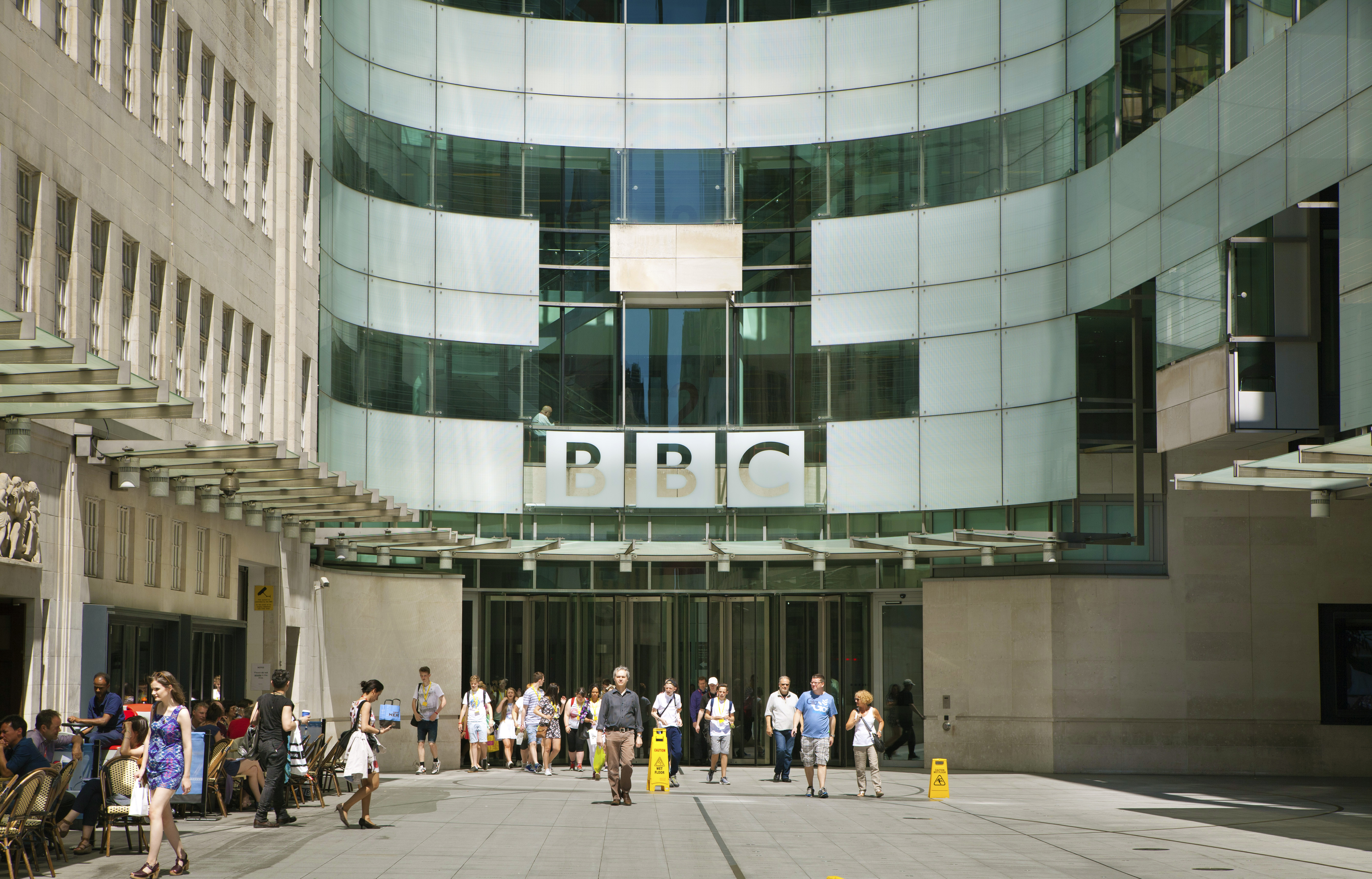
Research from the Pew Center, for example, shows that Americans’ views about multilateralism vary hugely according to news diet.
92% of Democrats who use left-leaning sources think the US should take into account the interests of its allies in foreign policy, compared with just 31% of Republicans who use right-leaning sources.
It is certainly telling that America’s most trusted news brand is now the BBC.
It was the late US Senator Daniel Patrick Moynihan who wrote: “Everyone is entitled to their own opinion, but not their own facts”.
The truth is, in America and elsewhere, many today would disagree.
Commercial providers increasingly see traditional journalism as far less profitable than taking sides.
It could be that, in today’s media environment, impartial news is no longer viable on a commercial basis.
Against this landscape, it should be clear: the BBC World Service, and indeed the BBC, is unique.
Free from commercial or political pressures… Not market led, but not government owned… Entirely independent, with no purpose other than to bring trustworthy information to those who need it most.
It is not for nothing that the former UN Secretary General, Kofi Annan, described it as possibly “Britain’s greatest gift to the world”.
Now, there’s an important point to be made here about the difference between ‘trustworthy’ and ‘truthful’. Which is why this video is very important.
Today it is not sufficient for news simply to be truthful.
Truthful reporting can also be selective and distortive, and indeed very often deliberately is – whether that’s to generate sensational front pages, chase social media engagement, or pursue political gain.
Every day we are asked to navigate an information landscape that is shaped into vastly conflicting narratives – not only by autocratic international regimes but also by demagogues and vested interests within our societies.
That is why today context matters more than ever.
There is a growing premium on news that comes with the benefit of analysis by world-class journalists and the curation of expert editors.
That’s why the BBC World Service stands out as a powerhouse global brand, synonymous with independent reporting that is truthful and trustworthy at the same time.
Today, however – with the BBC licence fee frozen for two years, in a highly inflationary environment – something has to give.
All of you will be familiar with the background to this debate… But it’s worth touching on some of the history of the World Service to understand in full the situation at which we have arrived.
In the wake of the Second World War, the Government took the decision to fund the World Service – through grant-in-aid via the Foreign Office.
This was largely in recognition of the fact that the many new foreign language services that grew up during the war acted powerfully in the national interest.
According to a White Paper at the time, they should be retained: “in order to maintain British influence and prestige abroad”.
That changed in 2014, relatively recently in the history of the World Service, when responsibility for funding the World Service was handed to the BBC – and, more specifically and challengingly, to licence fee payers.
Back then, the BBC was spending just over £250 million of licence fee funding on the World Service. That has since risen to £300 million.
At the same time, the BBC’s income has fallen by around a third in real terms. That’s before you factor in the latest rises in inflation and the current licence fee freeze.
Seven years ago, the Government agreed to top up the licence fee funding with an additional grant to help grow the World Service.
The goal was to support new language services and drive global reach in the digital age. It ushered in the World Service’s biggest expansion since the 1940s…
… New language services from Gujarati to Korean, Punjabi to Pidgin… New and expanded BBC bureaux in locations like Delhi and Nairobi, Cairo and Bangkok.
Thanks to that investment, the BBC’s global audience has more than doubled in a decade.
We have achieved record levels of growth on digital platforms, with the digital share of World Service languages rising from 19% to 43% since 2018.
In recent times the Government has announced further investment to help us build on our work to tackle disinformation and uphold global democracy – not least to support our work in Russia and Ukraine.
But in total that Government funding amounts to less than a quarter of the World Service budget.
There is obviously much more the World Service can do for audiences around the world and for the UK.
But the financial pressures on the BBC mean that we have now reached a crunch point. The right funding solution has to be found.
No one should underestimate the extent of the UK’s competitive advantage in this area.
If we take Nigeria, for example…
The African continent’s biggest economy… Its largest nation by population, with the third-largest concentration of young people in the world.
Between now and 2050, that population is projected to grow by over 70% – to around 375 million.
In the same timeframe, China’s population is expected to shrink by over 100 million.
A report published by Yonder this week showed that, in Nigeria, the BBC ranks as the second most recognised and admired British institution, behind only the Premier League. Still, second place isn’t too bad.
Meanwhile, independent research shows that, in any given month, 60% of people in Nigeria consume BBC news.
That compares to 9% for China’s CGTN and 2% for Russia’s RT.
And amongst ‘influential’ audiences, that figure rises to 98% in Nigeria, while CGTN and RT remain largely flat.
This is by no means an isolated example.
The BBC reaches over 75% of influential audiences in countries from India to Indonesia, Turkey to Mexico.
It’s an incredible position of strength, and one that others would give anything to be able to benefit from themselves.
The Russians and Chinese are together investing billions of dollars in their state-backed services, massively expanding their operations across Africa, South America and the Middle East.
They are outspending our World Service investment by a multiple of thousands.
The reality is that the BBC now has to deliver even further substantial savings than the ones we’ve made.
Our commitment is to deliver maximum possible value for the licence fee…
… So we have to ask ourselves how far it is appropriate for audiences in Leicester, for example, to continue picking up the tab for services in, for example, Lagos.
We have already announced a number of changes to the World Service, in September last year… It now needs more funding to avoid further cuts.
As John Kampfner of Chatham House observed in a recent article for Prospect: “where [the BBC’s] international services withdraw, Chinese and Russian state TV fill the gap”.
I believe the case is now very strong for the Government to look again at taking back responsibility for funding the BBC World Service – at what is a critical moment for Britain and for democracy worldwide.
This is the urgency of the moment we are in.
And we should be under no doubt that it is about far more than the future of the BBC.
The academic and international relations expert, Yuan Yi Zhu, wrote recently in The Telegraph that this issue “is one which goes beyond the Corporation’s four walls…
“It concerns a fundamental question: does the United Kingdom want to retain its influence worldwide, or is it content to forego its international voice?”
To some extent it is a debate that has been had before.
Back in the early 80s, a proposed reduction in BBC language services was enough to provoke international alarm.
The US President, Jimmy Carter, was warned by his National Security Advisor that the cuts would have a detrimental effect on “Free World information efforts out of all proportion to the money saved”.
This is the calculation we once again have to make today.
Against the backdrop of war in Ukraine, there could be no more important time for Britain to stand up against dangerous disinformation and fly the flag for democratic values around the world.
The UK is uniquely well placed to win the global information race.
But we will need to recognise our World Service as the priceless national asset it is, and back it accordingly.
About the author
Richard Sharp is the Chairman of the BBC.
The speech was originally published on BBC.
Related Posts
12th January 2023
Going all digital? BBC, France Télévisions consider online-only futures
The BBC is eyeing an online-only future…
15th July 2022
BBC sets out plans for new TV news channel to launch in 2023
The public broadcaster's planned new TV…
